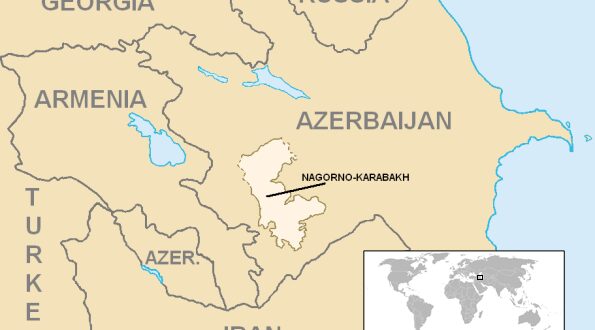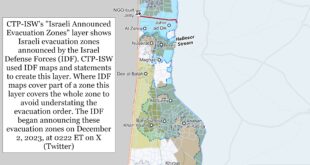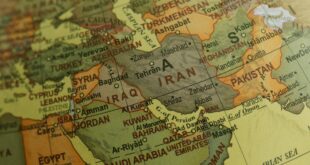In a recent development, Armenian Prime Minister Nikol Pashinyan issued a stark warning about the escalating tensions between Armenia and Azerbaijan, raising concerns over the potential outbreak of a new war. The two nations have a long history of conflict over the mountainous region of Nagorno-Karabakh, with efforts toward a lasting peace treaty showing limited progress. Diplomatic mediation by the European Union, United States, and Russia has yielded few results, leaving the situation highly volatile and complex.
The closure of the Lachin corridor, the sole road linking Nagorno-Karabakh with Armenia, in July further strained the region’s already precarious humanitarian situation. The lack of essential supplies like food, medicines, and power has sparked concerns of a crisis unfolding, making it imperative for the international community to address the pressing needs of the affected population.
Russia’s Role and Armenia’s Dilemma
Armenia’s reliance on Russia for military and economic support has raised questions about Moscow’s effectiveness as a peacekeeping force in Nagorno-Karabakh. The 2020 Moscow-brokered ceasefire agreement has come under scrutiny, with accusations of Russia failing to fulfill its obligations, further complicating the peace talks.
Pashinyan’s call for increased pressure on Azerbaijan to lift its blockade of Nagorno-Karabakh highlights the need for both the West and Russia to play a more assertive role in the region. However, Azerbaijan’s aggressive rhetoric and alleged pursuit of ethnic cleansing policies continue to impede progress in the negotiations.
The conflict’s ramifications extend beyond territorial disputes, impacting the rights and security of the region’s ethnic-Armenian population. The delicate balance between recognizing Nagorno-Karabakh as part of Azerbaijan while ensuring international mechanisms for protecting its people remains a significant challenge in the peace process.
International Witness and Diplomatic Efforts
As tensions persist, the international community must act as a witness to the dialogue between Karabakh and Azerbaijan, fostering an atmosphere of trust and accountability. With the stakes high and historical grievances deep-rooted, the path toward lasting peace requires careful diplomatic navigation and a concerted effort from all parties involved. The potential consequences of a new war are grave, with thousands of lives at risk and the stability of the entire Caucasus region hanging in the balance.
In 1988, the Armenian government declared a state of emergency in several regions of Armenia where Azerbaijani minorities lived. This allowed for the mass deportation of Azerbaijanis from these regions, with many being forced to leave their homes and communities behind.… pic.twitter.com/bbZmddv0dT
— Beetmatt 🇺🇦 (@FreshBeetNews) March 30, 2023A Long-standing Territorial Dispute
The Nagorno-Karabakh conflict is a long-standing territorial dispute between the two nations over the mountainous area in the South Caucasus. Its roots can be traced to the early 20th century when the region was part of the Russian Empire. After the downfall of the Empire in 1918, the area was incorporated into the Azerbaijan Democratic Republic, which had just been established. However, the ethnic Armenian population in Nagorno-Karabakh, historically the majority, sought to join Armenia. In 1921, the Soviet Union launched the Nagorno-Karabakh Autonomous Oblast within the Azerbaijan Soviet Socialist Republic, granting the region autonomy.
The conflict reignited in the late 1980s as the Soviet Union unraveled. In 1988, the Nagorno-Karabakh Autonomous Oblast voted to secede from Azerbaijan and join Armenia, sparking violent clashes between ethnic Armenians and Azerbaijanis. In 1991, Armenia and Azerbaijan declared independence from the Soviet Union, and the conflict escalated into a full-scale war. It persisted from 1991 to 1994, leading to the loss of an estimated 30,000 lives and the displacement of hundreds of thousands of people. In 1994, a ceasefire was signed, and Nagorno-Karabakh, along with seven surrounding districts, came under the control of ethnic Armenian forces. The ceasefire agreement was brokered by Russia and has been in place since then, but the conflict has remained unresolved.
The conflict has deep-seated and intricate root causes, driven by a combination of historical, ethnic, territorial, economic, and geopolitical factors. The region’s strategic location at the intersection of Europe and Asia, along with its abundant natural resources such as oil and gas, further adds to its significance. Moreover, it has also been shaped by the legacy of Soviet-era policies, which created artificial borders and ethnic divisions within the region. The Soviet Union’s policy of divide and rule, which pitted ethnic groups against each other, exacerbated tensions and created a legacy of mistrust and animosity. Efforts to resolve the conflict have been ongoing for decades, with various international organizations and countries involved in mediation efforts. However, progress has been limited, and the situation remains highly volatile and complex.
The situation between Armenia and Azerbaijan remains highly sensitive and precarious, with the risk of a new war looming large. The need for genuine diplomatic engagement and effective mediation from international stakeholders cannot be overstated. A peaceful resolution to the conflict is crucial not only for the affected nations but also for regional stability and global security. The world must come together to address the root causes of the tensions and pave the way for a future of peaceful coexistence in the Caucasus.
 Eurasia Press & News
Eurasia Press & News




